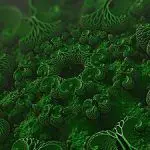The essential difference between the Gap junction and the Tight junction is that the first one is known to direct channel between cytoplasms of the adjacent cells, while the latter blocks the passage of solutes and water molecules between epithelial layers in vertebrates. Gap junctions are widely spread in the body of vertebrates, while tight junctions are only found in … [Read more...] about Difference Between Gap Junction and Tight Junction
Difference Between Biochemical Oxygen Demand (BOD) and Chemical Oxygen Demand (COD)
Biochemical Oxygen Demand (BOD) is the measurement of the amount of oxygen consumed by aquatic microorganisms to decompose or to oxidize the organic matter. On the other hand, Chemical Oxygen Demand (COD) refers to the amount of oxygen needed to break down the pollutants chemically. BOD and COD are correlated, as both are the methods with the aim of indicating the amount of … [Read more...] about Difference Between Biochemical Oxygen Demand (BOD) and Chemical Oxygen Demand (COD)
Difference Between Protozoans and Metazoans
The significant difference between the Protozoa and Metazoa is that the Protozoans are single-celled, though the Metazoans are multicellular. Secondly, the former one (Protozoa) belongs to the primitive type while the latter (Metazoans) belongs to the developed type of animal kingdom. Along with the variations in these two, there are few similarities also like, both the … [Read more...] about Difference Between Protozoans and Metazoans
Difference Between Lytic and Lysogenic Phase
The main difference between the two life cycles followed by the phage during the infection to the bacterium is that in the lytic phase the phage infects the machinery of the cell to make more of its components, and later they lyse, or destroy, the cell, and releases new phage particles. However, in the lysogenic phase, the phage does not destroy the host cell; instead, they … [Read more...] about Difference Between Lytic and Lysogenic Phase
Difference Between Creepers and Climbers Plants
Creepers and Climbers are plants with weak stems and hence cannot grow erect, so, they grow with the support of either an object or horizontally along with the soil. 'Creepers' as the name says, expand horizontally along with the soil, whereas 'climbers' grow erect by holding up any object. There are many examples of these types of plants, like watermelon is creeper while … [Read more...] about Difference Between Creepers and Climbers Plants



